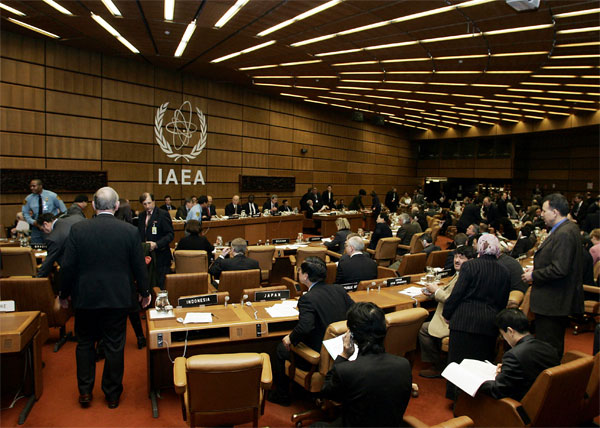
Event Recap: The Evolution of the Nuclear Order: A Global Perspective
On June 6, 2016, the Carnegie Endowment for International Peace held an event titled, “The Evolution of the Nuclear Order: A Global Perspective.” It was hosted by Toby Dalton with panelists Debak Das, Mariana Nascimento Plum, and Tong Zhao, and by Togzhan Kassenova with Adam Scheinman.
The event focused on the perspectives of middles powers on nuclear issues relating to their position within the NPT regime. More specifically, the event looked into how states like China, Brazil, and India have taken issue with the current nuclear order in terms of its fairness and lack of adaptation to the new balance of power. Since they did not take part in the construction of the rules of the non-proliferation regime, these countries take issue in regards to the rules outdatedness given that they are now economically and politically powerful enough to voice their opinions on an international stage.
Mariana Nascimento Plum, from the Brazilian Army Strategic Studies Center, discussed unfairness of the nonproliferation regime in terms of the restrictions on access to technology that is not specifically used for the production of nuclear energy. She makes the argument that having access to high added-valued technology is development and economic issue for the country. For economic development though, she referred to Brazil’s national defense posture and stated that this technology was important for the development of a military industrial complex that would allow the country to export military equipment and not rely on foreign markets. This was made explicitly clear when Mariana mentioned the nuclear powered submarine that is under construction today. Brazil’s declining economic and political state has prevented the country from a more activist role in the international system, but it has not stopped the state from holdings its views of frustration with the setup of the nuclear order.
Tong Zhao, from the Carnegie-Tsinghua Center for Global Policy in Beijing, discussed the indigenization of nuclear technology and its role as a nuclear supplier in the world. China’s non-proliferation concerns are driven by several factors. The country does not wish the technology to spread to the Middle East for economic reasons, and it does not want it to spread to its neighbors like the North or South Korea, Japan, or Taiwan for security reasons. China’s current modernization of its nuclear forces is seen as the foundation of its national security and a process to deter other states like North Korea to slow down their nuclear aspirations and maintain the status quo in East Asia.
Debak Das, from the Cornell University’s Department of Government, discussed how despite India’s lack of recognition as a nuclear armed state by the NPT, states can still get what they want if they play the game right. The 2005 and 2008 nuclear deals with the United States are prime examples of a country having its concerns accommodated to its national interests. Even though India has advanced in other realms of non-proliferation, its status of a nuclear power still needs to be addressed. He proposes that the country can be accommodated with a different title that does not degrade the NPT regime but still takes into account its status within the regime.
Adam M. Scheinman, the special representative of the president for Nuclear Nonproliferation in the Bureau of International Security and Nonproliferation at the U.S. Department of State, discussed countries that complain about the unfairness are ones that cannot be ignored given their power status in the international system. With these states becoming more vocal, the United States and other nuclear powers are having a more difficult time in controlling the narrative of the NPT and may have to address their concerns and interests in one way or another. But he makes the point that some of the positions that some states make, like Brazil and not ratifying the Additional Protocol, make it more difficult to make more meaningful movements towards a nuclear disarmed world.





